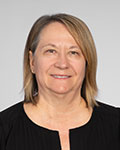About Us
Welcome to the Paramedic Education Program. The program has a longstanding commitment to providing exceptional pre-hospital care to Summit County and its surrounding areas since 1976. The program has proudly produced over 1,400 skilled paramedics. Throughout the program, students will accumulate nearly 1,000 hours of didactic, clinical, and field internship experience. The program may occasionally schedule full or partial days of class during the program outside of normal class time. This is typically for specific courses such as ACLS, PALS, and ITLS. Required dates will be communicated during the first week of the course when/if required. It's important to allocate at least 25-35 hours per week for class time, studying, clinical rotations, and field internships.
The Paramedic Education Program offers courses at Cleveland Clinic Akron General Campus and Wayne County through our partnership with The University of Akron Wayne College.
The Akron General course is offered as a daytime program each Fall beginning in late August and ending in late May, providing a comprehensive ten-month curriculum. The daytime course runs from 8:30 a.m. to 12:30 p.m. on Tuesday, Wednesday, and Thursday.
The Wayne Paramedic satellite course is taught at the University of Akron Wayne College, located in Orrville, Ohio. It is offered as an evening course each Spring, starting in January and ending in October, providing a comprehensive ten-month curriculum. The Wayne Paramedic course runs from 6 p.m. to 10 p.m. on Monday, Tuesday, and Wednesday, with lab sessions replacing lectures.
Accredited by the Ohio Department of Public Safety and the Commission on Accreditation of Allied Health Education Programs (CAAHEP) upon the recommendation of the Committee on Accreditation of Education Programs for the Emergency Medical Services Professions (CoAEMSP), the program stands as a pioneer in Ohio, being the first hospital-based program in the state and the 72nd nationwide to achieve CAAHEP National Certification in 1991.
An articulation agreement has been established between Cleveland Clinic Akron General and The University of Akron's College of Health and Human Sciences. This agreement allows eligible paramedic graduates to transfer thirty academic credit hours towards an Associate of Applied Science in Emergency Medical Services Technology Degree. This opportunity is open to all program graduates from 1985 onwards. Paramedic courses are featured within the University of Akron's course offerings.
Accreditation
The Paramedic Education Program is accredited by the Commission on Accreditation of Allied Health Education Programs upon the recommendation of the Committee on Accreditation of Educational Programs for the Emergency Medical Services Professions (CoAEMSP).
Commission on Accreditation of Allied Health Education Programs
727.210.2350
To contact CoAEMSP:
214.703.8445
The Paramedic Education Program is accredited by the Ohio Department of Public Safety.
Ohio Department of Public Safety
1970 W Broad St.
Columbus, OH 43223
844.644.6268
Mission
To provide initial education to emergency medical service professionals, to create competent entry-level providers, and to further the mission of Cleveland Clinic.
Objectives
The goal of the Paramedic Education Program is to:
- Prepare competent entry-level paramedics in the cognitive (knowledge), psychomotor (skills), and affective (behavior) learning domains with or without exit points at the Advanced Emergency Medical Technician and/or Emergency Medical Technician, and/or Emergency Medical Responder levels.
- Prepare students to pass the written and practical National Registry examinations at the Paramedic level.
- Provide competent, confident, and independent thinking paramedics for the communities they serve.
Contact information
Hugh Dodd, MSN, RN, EMT-P, FESI
Program Director
Akron General
1 Akron General Avenue
Akron, OH 44307
EMSPrograms@ccf.org
330.344.6504
Admissions
In addition to program-specific admissions requirements and procedures, applicants are encouraged to review requirements and disclosures outlined on the School of Health Professions’ Admissions & Enrollment page.
School of Health Professions catalog
Additional information can be found in the School Catalog, including school-wide policies and procedures, program-specific information, and course descriptions.
Technical standards
Sensory and motor skills - Students and candidates for program admission should be able to:
- Move and transfer patients in a safe manner
- Move clinical equipment in a safe and controlled manner
- Demonstrate basic clinical skills related to the use of extracorporeal equipment, circuitry, and ancillary clinical patient care devices and equipment
Communication - Students and candidates for program admission should be able to:
- Demonstrate proficiency in the English language
- Communicate clearly
- Produce and transmit patient information in oral and written format to members of the healthcare
- Communicate with patients effectively with compassion and empathy
- Demonstrate reading skills at a sufficient grade level to accomplish curricular requirements
- Provide effective care for patients
Intellectual - Students and candidates for program admission should be able to:
- Measure, calculate, interpret, analyze, question, compile and evaluate information from various modalities to effectively evaluate extracorporeal equipment and treat patients
- Comprehend spatial relationships of structures and models
- Comprehend relationships between patient care parameters and anticipate cause and effect responses based on their actions and inactions
- Learn through a variety of teaching modalities including classroom lecture, cooperative learning, small group activities, medical simulation and laboratory exercises, individual and group presentations, and the use of technology-assisted learning
- Make rapid decisions in life threatening situations where problem solving and critical thinking are required
Behavioral and social attributes - Students and candidates for program admission should be able to:
- Exercise good judgment, prompt completion of all responsibilities related to care of patients and participation in a patient care team
- Develop mature and effective relationships with co-workers and patients
- Perform problem solving skills in a timely manner
- Tolerate physically demanding workloads
- Function effectively under stress
- Adapt to changing environments, display flexibility, and learn to function in an environment of uncertainty inherent in the clinical practice of cardiovascular perfusion
- Practice in a safe manner
- Respond appropriately to emergencies
- Treat all patients, families, colleagues, and other members of the health care team with dignity and respect
- Demonstrate honesty, integrity, dedication, compassion and motivation
- Accept constructive criticism and respond appropriately with an acceptable modification of behavior
Observation - Students and candidates for program admission should be able to:
- Comprehend information presented in images from paper and projections such as PowerPoint slides and video
- Observe laboratory, lecture and clinical demonstrations
- Observe patients and members of the healthcare team accurately both at a distance and close up
Requirements
To be considered for admission, applicants must meet the following criteria and submit the required documents and application by the submission deadline.
- Minimum age of 18 years
- Possession of a valid Ohio driver's license
- Current AHA, ASHI, or ARC BLS Healthcare Provider Card
- NIMS 100 and 700 Certifications
- EMT status
- Certification as an EMT in Ohio or possession of National Registry EMT with active pursuit of Ohio reciprocity before the start of class
- It is the student’s responsibility to maintain EMT certification throughout the duration of the program.
- Request one letter of recommendation from a work supervisor, or someone familiar with the candidate’s ability to be a successful paramedic.
All complete applications receive a full review before interview invitations are sent. Candidates who receive an interview will be evaluated on the effectiveness of communication, leadership skills and qualities, and motivation.
When an applicant repeats a prerequisite course, the program will consider the highest grade earned for admission and GPA calculations. For example, if a student initially earns an “F” and later earns a “C” in the same course, the program will use the “C” as the official grade for admissions/evaluation purposes.
Conditional Admittance
Basic Life Support for Healthcare Providers certification is not required at the time of application, but must be completed and valid prior to the start of the program. Training from the following provider(s) is accepted:
- American Heart Association (AHA) Basic Life Support
- American Safety & Health Institute (ASHI)
- American Red Cross (ARC) Basic Life Support
Proof of certification must be uploaded to the applicant portal in Campus Café.
Failure to complete and submit valid certification before the first day of the program will render the applicant ineligible to begin the program.
If you have questions, please contact the Registrar at SOHPRegistrar@ccf.org for clarification.
Applicants must have a comprehensive knowledge of anatomy and physiology as an admissions requirement for the paramedic program. Applicants can complete this requirement in one of the following ways:
- Complete a comprehensive college-level anatomy and physiology sequence, earning a minimum grade of “C” or higher within the last five years. Applicants can complete this by completing a two-course sequence (Anatomy and Physiology I and II) OR
- Complete a comprehensive single college-level Anatomy and Physiology course covering all body systems, earning a minimum grade of “C” or higher within the last five years OR
- Complete a comprehensive single college-level Anatomy course and a comprehensive single Physiology course covering all body systems, earning a minimum grade of “C” or higher within the last five years OR
- Completion of the Cleveland Clinic Anatomy and Physiology Modules before the start of the first day of the course. This option is completed 100% online and outside the paramedic course and tuition structure. Applicants are responsible for the costs associated with module enrollment. Applicants who do not meet the college level anatomy and physiology requirements should speak directly with the Program Director regarding steps to complete the Cleveland Clinic Anatomy and Physiology Modules before the start of the first day of the course.
Application process
Akron General cohort
The Paramedic Education Program at Akron General begins accepting applications December 31. The application deadline each year is May 1 to be considered for the Fall Semester start date. Please select ‘Fall 20XX’ in the ‘Anticipated Starting Semester’ field of the application.
University of Akron Wayne College cohort
The Paramedic Education Program at the University of Akron Wayne College begins accepting applications June 1. The application deadline each year is October 31 to be considered for the Spring Semester start date. Please select ‘Spring 20XX’ in the ‘Anticipated Starting Semester’ field of the application.
Please note, if the application window of the Paramedic Education Program is closed it will not appear in the ‘Program of Interest’ list within the application. Applicants will only be able to submit their application when the application window is open.
Admission documents and requirements
An applicant is required to complete the following items after submitting their initial application in Campus Cafe in order for their application to be considered. Please note that documents marked with an asterisk (*) are not considered during the evaluation of applications and will not affect an applicant’s eligibility or admission decision. They are required, however, for administrative purposes.
- Submit your non-refundable $20.00 application fee payment in Momentus and upload a copy of your payment confirmation to your applicant portal in Campus Cafe.*
- Complete the Paramedic Education Supplemental Application and upload the completed supplemental application form to your applicant portal in Campus Cafe.
- Complete the Applicant Demographic Survey and upload a copy of your survey completion confirmation to your applicant portal in Campus Cafe.*
- Upload a copy of your current American Heart Association (AHA), American Safety & Health Institute (ASHI), or American Red Cross (ARC) Basic Life Support certification to your applicant portal in Campus Cafe.**
- Upload a copy of your National Incident Management System (NIMS) 100 certification to your applicant portal in Campus Cafe.
- Upload a copy of your National Incident Management System (NIMS) 700 certification to your applicant portal in Campus Cafe.
- Upload a copy of your valid Ohio driver’s license to your applicant portal in Campus Cafe.
- Upload a copy of your EMT certification to your applicant portal in Campus Cafe.
- Upload a copy of your resume or curriculum vitae to your applicant portal in Campus Cafe.
- If the applicant’s native language is not English, official scores from the Test of English as a Foreign Language (TOEFL) or the Duolingo English Test (DET) are required. Applicants must have a total minimum score of 75 with written and speaking sections no less than 17 for the TOEFL. A minimum score of 105 is required for the DET. Exam date must be within two years of the program's start date. If applicable, complete the Test of English as a Foreign Language (TOEFL) or Duolingo English Test (DET) and upload a copy of your results to your applicant portal in Campus Cafe.
- Request one professional recommendation letter. Recommendation letters are required to be submitted by the letter writer via email to EMSPrograms@ccf.org. The letters will be uploaded to your applicant portal by program administration.
- Upload your transcripts to your applicant portal in Campus Cafe. You are required to submit unofficial transcripts if you have completed a college level anatomy & physiology course within five years of the program start date and earned a letter grade of “C” or better. Applicants who have not completed a college level college level anatomy & physiology course should review the “Conditional Admittance language” for next steps. Documentation of a high school diploma or GED is also required. The program will also accept an official high school transcript in lieu of diploma. All foreign transcripts must be evaluated by World Education Services (WES) on a course-by-course basis. If applicable, upload a copy of your WES transcript evaluation to your applicant portal in Campus Cafe.
- Complete and successfully pass the pre-entrance examination. Please see additional information under “Pre-entrance examination” below. The applicant is not required to upload documentation to the applicant portal in Campus Cafe.
**The BLS certification is an admissions document that is required to be completed prior to the beginning of the program. Please see the “Conditional Admittance” section for more information.
All complete applications receive a full review before interview invitations are sent. Candidates who receive an interview will be evaluated on the effectiveness of communication, leadership skills and qualities, and motivation.
Enrollment documents and requirements
If an applicant is accepted into the program the following items are required in order to enroll in the program. Please review the health requirements before submitting your documentation.
- Complete and sign an Enrollment Agreement in Campus Cafe via DocuSign.
- Complete the Student IPEDS Survey and upload a copy of your survey completion confirmation to your applicant portal in Campus Cafe.
- Complete a 10-12 panel urine toxicology screen and upload a copy of your results to your document portal in Campus Cafe.
- Upload your influenza immunization documentation (required during flu season, November 1 through March 31) to your applicant portal in Campus Cafe.
- Upload your negative tuberculosis (TB) test documentation to your applicant portal in Campus Cafe. The TB test must be completed within 12 months prior to the start of the program.
- Upload your immunization documentation for chicken pox (varicella) or positive titer to your applicant portal in Campus Cafe.
- Upload your immunization documentation for measles, mumps, and rubella (MMR) to your applicant portal in Campus Cafe.
- Upload your positive hepatitis B titer or waiver to your applicant portal in Campus Cafe.
- Upload your tetanus, diphtheria, pertussis (Tdap) booster documentation to your applicant portal in Campus Cafe. The booster is required within the past 10 years.
- Complete the required onboarding tasks in SilkRoad. Onboarding will include a background check. Additional information will be provided following completion of the above items.
Liability insurance
Students enrolled in the Cleveland Clinic School of Health Professions are covered under Cleveland Clinic’s general liability insurance when participating in activities that constitute a part of their educational program.
Pre-entrance examination
This comprehensive four-hour exam includes an EMT test, the Wonderlic Scholastic Level Exam, and a reading comprehension test. Please note that the components of the exam are subject to change. Any modifications will be communicated to all candidates at least two weeks prior to the examination.
Articulation agreements
The Paramedic Education program is offered under the sole sponsorship of Cleveland Clinic. However, students who meet specific articulation criteria may be eligible to apply credits earned in the program to academic programs at other institutions with which articulation agreements exist. Acceptance of transfer credit is at the discretion of the receiving institution and is not guaranteed. Students are encouraged to contact the receiving institution directly to confirm eligibility and acceptance of coursework.
The following institutions currently have articulation agreements in place with this program:
- University of Akron
Akron, Ohio
Tuition & Fees
Tuition for the Paramedic Education Program is $6,600. Students are responsible for purchasing a textbook and access to Platinum Planner. Tuition can be paid in three equal installments of $2,200. Instructions on how to make payments via the Campus Café are provided during the application process.
Tuition payments for the Akron General course are due in the following months:
- August (first day of class) - $2,200
- December or January - $2,200
- February or March - $2,200
Tuition payments for Wayne Paramedic satellite course are due in the following months:
- January (first night of class) - $2,200
- May - $2,200
- August- $2,200
Cost of attendance
The cost of attendance for the Paramedic Education Program is a budget comprised of direct and indirect costs. Tuition is a direct cost charged by the program. All others are indirect costs that a student may incur during the course of the program and is not paid to the program. These costs are subject to change.
|
Tuition |
$6,600 |
|
Books & supplies |
$0 |
|
App fee |
$20 |
|
Food & housing |
$11,902 |
|
Transportation |
$1,950 |
|
Personal |
$1,920 |
|
Total |
$22,392 |
Tuition refund policy
The Paramedic Education Program issues refunds for tuition and other fees for eligible applicants and students as outlined in the School of Health Professions’ Tuition Refund Policy.
Graduate Information
Transcript requests
Information regarding how to request official transcripts can be found on the School of Health Professions’ Records page.
Graduation requirements
All students must meet the following criteria for graduation:
- Pass all portions of the program’s written exams
- Pass all portions of the program’s practical exam
- Complete all clinical/ field requirements and required documentation
- Overall grade average of 75% or higher in all phases of the program
Satisfactory Academic Progress (SAP)
The student’s Satisfactory Academic Progress (SAP) toward graduation will be evaluated after the completion of each term of the program. Failure to maintain SAP may result in the student being dismissed from the program.
Program Outcomes
National Registry CBT Exam
|
Grad Year |
2021 |
2022 |
2023 |
|---|---|---|---|
|
# Of Grads |
20 |
39 |
45 |
|
# Of Grads Attempting |
20 |
39 |
45 |
|
# Passing - 1st Attempt |
16 |
37 |
38 |
|
# Passing by Third Attempt |
4 |
1 |
41 |
|
Total Passing by Third Attempt |
20 |
38 |
43 |
|
% of Grads Passing NR CBT by Third Attempt |
100% |
97.4% |
91% |
National Registry Psychomotor Exam
|
Grad Year |
2021 |
2022 |
2023 |
|---|---|---|---|
|
# Of Grads |
20 |
39 |
45 |
|
# Of Grads Attempting |
20 |
39 |
45 |
|
# Passing - 1st Attempt |
19 |
39 |
45 |
|
# Passing subsequent attempts |
1 |
0 |
0 |
|
Total passing to date |
20 |
39 |
45 |
|
% of Grads Passing NR PE by Third Attempt |
100% |
100% |
100% |
Attrition/Retention
|
On Time Graduation Date Year |
2021 |
2022 |
2023 |
|---|---|---|---|
|
Total Students in Class |
26 |
46 |
54 |
|
# Of Students Dropped (Attrition) |
6 |
7 |
9 |
|
% Attrition |
23.08% |
15.22% |
16.67% |
|
% Retention |
76.92% |
84.78% |
83.33% |
Positive Placement
|
Grad Year |
2021 |
2022 |
2023 |
|---|---|---|---|
|
# Of Grads |
20 |
39 |
45 |
|
# Of Grads Employed |
20 |
39 |
39 |
|
Positive Placement Percentage |
100% |
100% |
87% |
Curriculum
Academic calendars
Paramedic skillset
As a paramedic, training will encompass a broader range of skills in addition to those students possess as an EMT. These include:
Advanced Airway Management
- Performing oral endotracheal intubation
- Conducting nasal endotracheal intubation
- Executing percutaneous cricothyroidotomy
- Applying continuous positive airway pressure (CPAP)
- Administering needle decompression
- Operating a transport ventilator
Pharmacological Interventions
- Establishing intravenous access (IV)
- Utilizing intraosseous access (IO)
- Administering intramuscular injections (IM)
- Delivering subcutaneous injections (SC)
- Implementing sublingual administration (SL)
- Proficiently administering over 30 medications via IV, IO, or IM/SC
Medical/Cardiac Care
- Placing and interpreting electrocardiograms (ECG)
- Performing synchronized cardioversion
- Conducting manual defibrillation
- Utilizing transcutaneous pacing
- Conducting comprehensive medical and trauma patient assessments
For any further inquiries, please contact the Paramedic Education office at 330.344.6655.
Additional Information
Meet Our Administrative Team

Amy Raubenolt, MD, MEd, MPH
Medical Director
Dr. Raubenolt joined the program as Medical Director in 2015. She spent nine years as a volunteer EMT-I in rural Ohio, which prompted her to change careers from teaching to medicine. Dr. Raubenolt has a Bachelor's and Master’s degree in Education from Bowling Green State University and obtained a Master’s in Public Health and medical degree at The Ohio State University. After graduating from medical school at Ohio State, Dr. Raubenolt completed her Emergency Medicine residency and EMS Fellowship at Western Michigan University in Kalamazoo, where she served as a medical control physician for the Kalamazoo County Medical Control Authority. Dr. Raubenolt is currently the EMS Medical Director at Cleveland Clinic Akron General, Akron Fire Department, Stow Fire Department and the Akron Fire/Police TEMS/SWAT team.

Hugh Dodd, EMT-P, MSN
Program Director
doddh2@ccf.org
330.344.6504
Hugh has more than 25 years of EMS experience, which began when he volunteered for his local fire department in Kirkland, WA and completed his EMT in 1998. Moving to Maine in 2002, he completed his EMT-I in 2003, and his Paramedic in 2004 while working in hospital-based EMS. Hugh attended the Paramedic to RN bridge program at Stark State, receiving his nursing license in 2012. His nursing experience includes ICU, CCU, ER and Nursing Supervision. He completed a Master of Science in Nursing degree in 2021. Hugh also served as the Coordinator for EMS and Safety at Lodi Hospital for 5 years, which included training and work in Emergency Management. He joined the program in June of 2024 serving as Manager. He took on the role of Program Director in April of 2025.

Manager, EMS Education - Open
EMSPrograms@ccf.org
330.344.6655

Jeremy Albert
Clinical Program Coordinator
albertj7@ccf.org
330.344.6655

Whitney LaBillois, NREMT
Administrative Program Coordinator
labillw@ccf.org
330.344.6507

Cheryl Hardin
Administrative Assistant
hardinc4@ccf.org
330.344.6655